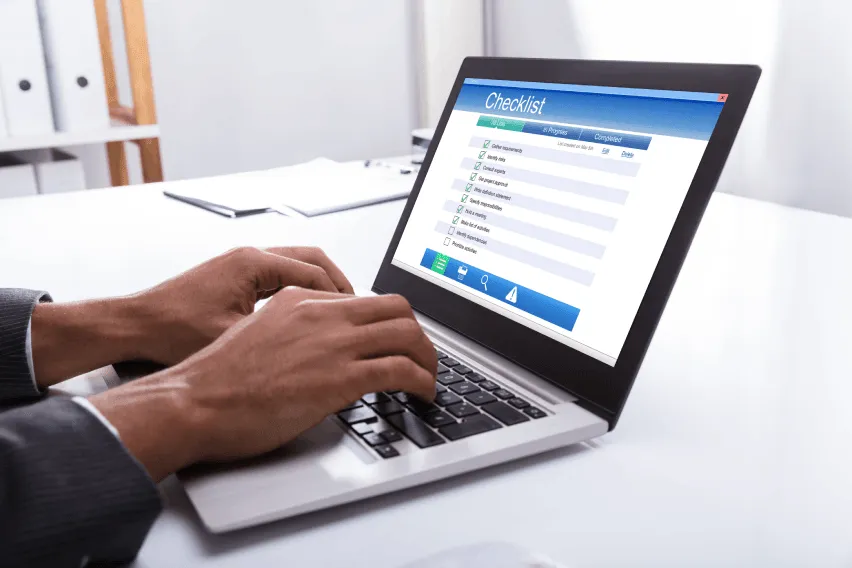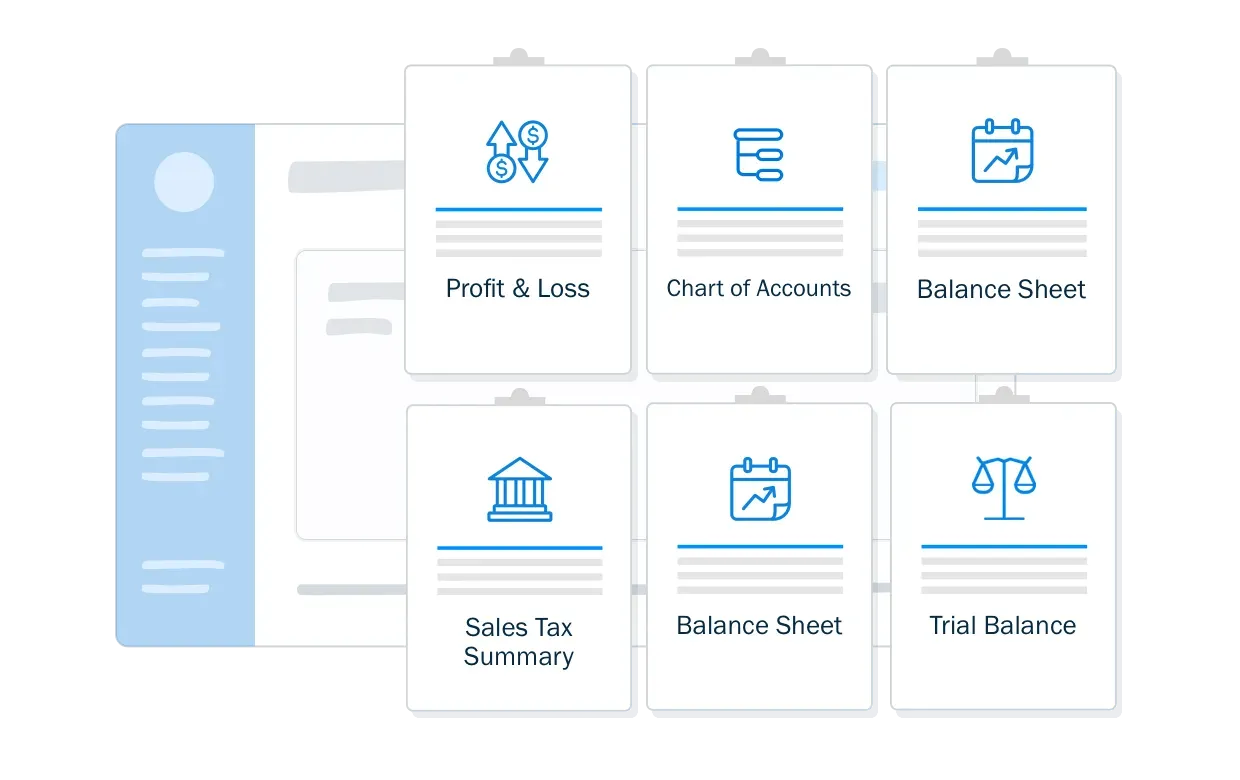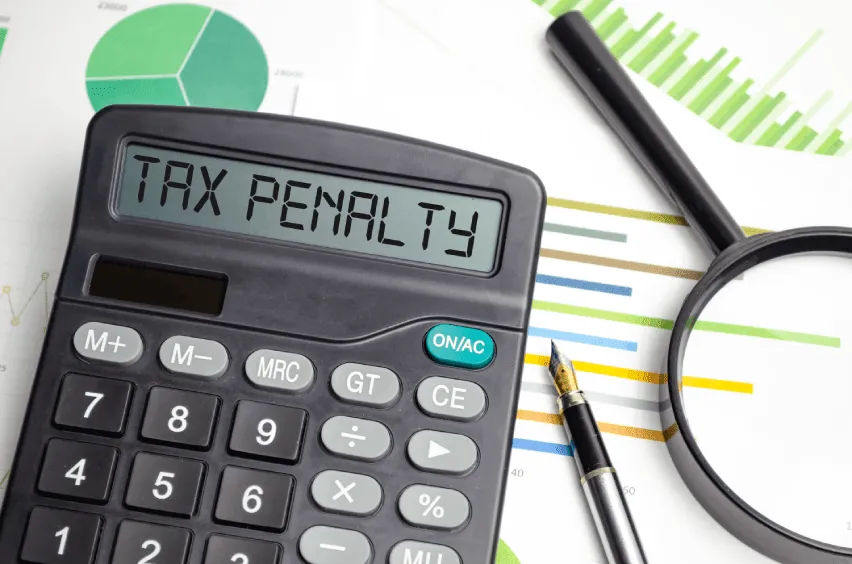Making Tax Digital Checklist: How To Get Started

From April 2022, all VAT-registered businesses must submit their VAT returns via MTD (Making Tax Digital) in digital form with links.
If you run a VAT-registered business, you’re likely already registered for MTD. However, if you’re a new business owner or you’re looking to register for VAT, you need to be prepared to utilise MTD.
Affected companies that fail to adhere to MTD standards are subject to penalties. So, you need to have everything organised and fully understand the answer to the question, “what is Making Tax Digital?”
Key Takeaways
- If your business is registered for VAT, you must adhere to MTD.
- You may be exempt from MTD for VAT if there is a just reason.
- All VAT accounting must be digital. Manual processes need adjustment.
- You must use MTD-compatible accounting software and house your VAT information as digital records.
- You must register for Making Tax Digital for VAT 7 days before your next VAT return or 5 days after your last one.
- All staff members need MTD training to ensure your business stays compliant.
- You must digitise any remaining paper-based records.
This article provides a comprehensive checklist of everything you need to prepare for MTD for VAT.
In this article we’ll cover:
Making Tax Digital Checklist
1. Find Out if MTD Applies to Your Business
All VAT-registered businesses are subject to MTD. Initially, this only applied to VAT-registered businesses with a taxable turnover above the current VAT threshold. This standard changed to all VAT-registered businesses in April 2022.
VAT-registered sole traders are also subject to MTD for VAT.
Eventually, MTD will expand beyond VAT. All business owners and sole traders who make more than £50,000 per year must register for MTD in April 2026. This will further extend to business owners and sole traders who make over £30,000 per year in 2027.
2. Exemptions and Deferrals from MTD for VAT
Some businesses are exempt from MTD for VAT even if they file VAT returns. You’ll have to claim an exemption via the VAT helpline to defer MTD. Exemptions are not a matter of convenience and are in place for people who cannot use electronics or software.
You may claim an exemption if:
- You cannot reasonably access reliable internet
- You cannot use a computer, tablet, or smartphone long enough to file your VAT returns due to a disability (this exemption may include age)
- You cannot use electronic devices due to your religious beliefs
- Your business is currently undergoing insolvency procedures
3. Review Your Processes for MTD
Review all your processes to gauge whether or not they are MTD-compatible. Be thorough in your analysis, even if it’s tedious. It’s worth it to avoid penalties.
Consider how you create sales invoices, capture expenses, calculate VAT liabilities, and generate VAT returns. How much of this process is manual, and where can you digitise it? Replace as many manual processes with digital ones as you can in advance. Adjusting early will make digital processes easier when they’re required.
You may transcribe your paper-based records to your accounting software. However, transcribing handwritten notes does not qualify as an MTD digital link. Only practice transcription as you transition and then adopt an entirely digital record-keeping system. You can transition smoothly to Making Tax Digital (MTD) by using our FreshBooks MTD VAT Software.

4. Make Sure You Have Functional Compatible Software
Not every accounting software tool qualifies as MTD-compatible software. Functional compatible software must have API (Application Program Interface) capabilities because that is how data transfers to the HMRC’s computers.
Prioritise software with robust, user-friendly record-keeping features. This will make it much easier to store your required digital records. Functional, compatible software should also be digitally linked with any other electronic tool that you use for accounting.
The HMRC will not roll out an MTD software tool. Individuals must acquire functional compatible software from a third-party software provider.
FreshBooks is 100% compatible with MTD for VAT. Our FreshBooks cloud accounting software package makes it simple to submit VAT returns, view previous returns, and digitally link your software as required. Click here to start your free trial today. Click here to start your free trial with FreshBooks today.

5. Know Your Deadlines & Penalties
One of MTD’s biggest adjustments is switching from an annual to a quarterly payment schedule. If you’re used to annual tax returns, it can be easy to forget an upcoming quarterly payment date.
Set your quarterly dates on your calendar ahead of time. This way, you won’t miss any payments once you transition to MTD for VAT.
If you recently registered for VAT, make sure you sign up for MTD at least 7 working days before your VAT return is due. The HMRC may take up to 72 hours to process your registration, and you don’t want to suffer repercussions because you didn’t register in time.
Please wait until at least 5 days after filing VAT returns before you register for MTD.
Failure to comply with MTD for VAT incurs fines based on the offence. Understand what Making Tax Digital penalties are and how to avoid them.
Possible penalties include:
- Incorrectly submitting a VAT file may result in a £400 fine per file.
- Erroneous VAT accounting records could force you to pay the VAT amount owed up to 100%.
- You will have to pay £5 to £15 per day each day you do not use MTD digital links.
- If you underestimate how much VAT you owe, you must inform the HMRC within 30 days of filing your VAT returns. Failure to do so means you must pay 30% of your original assessment.
6. Train Your Staff
Unless you’re a sole trader, it’s not just your responsibility to maintain MTD compliance. The aforementioned penalties are still applicable if the error came from someone else. Make sure every business admin, accountant, and bookkeeper understands MTD for VAT as well as you do.
Learn what they are doing right now and arrange alternative measures if necessary. You may want to take them through this same MTD for VAT checklist to verify that they understand the same MTD rules you’ve learned.
Learning MTD standards may not be enough. You may have to introduce your employees to a new MTD-compliant software program. There’s always a probation period with new software, no matter why you’re introducing it. Make sure you give your employees enough time to learn to adapt to the new system before their mistakes can lead to penalties.
7. Switch to MTD for VAT
If your business already uses accounting software, the transition will be easy. It’s more difficult if you rely on paper records.
All paper records will need to be digitised. You may keep your old paper documents for record-keeping purposes but cannot use them to submit VAT returns going forward.
You may continue using spreadsheets under MTD. However, they cannot be your only solution. Use spreadsheets in tandem with other MTD-compliant digital tools.
Be careful not to assume you comply simply because you use accounting software. Examine your accounting tool to ensure it meets MTD for VAT requirements.

Conclusion
As of 2025, all VAT-registered businesses should already be signed up for MTD. If you’re not, please correct that as soon as possible because the HMRC will now enforce penalties for non-compliance. Those who plan to register for VAT still have some leeway as long as they sign up for MTD right away.
Let this checklist be your guide to navigating MTD. We focused on VAT in this article, but remember that MTD for ITSA is coming in 2026. Many of the same principles in this article will apply as you prepare for that next phase.
Frequently Asked Questions
Is Making Tax Digital compulsory for all businesses?
As of 2025, MTD is compulsory for VAT-registered companies. It will be compulsory for other businesses after April 2026.
Can my accountant do MTD for me?
Your accountant can file your taxes via MTD like they can on paper. Accountants can also offer advice on how you can improve your MTD for VAT processes. An accountant is not mandatory for MTD.
Can I submit a VAT return without MTD?
After November 2022, you cannot submit returns through your online VAT account. Business owners and sole traders must file VAT returns with MTD-compliant software.
How do I organise my tax documents?
Organising digital tax documents is much simpler than organising paper ones. Different software tools have different data organisation methods. In most cases, you can find a method that works for you on your cloud accounting software package.
How do I know if I’m registered for MTD?
If you signed up for MTD, the HMRC will email you to confirm your registration. Please wait at least 72 hours for the HMRC to respond.
Can I still submit VAT returns via paper after Making Tax Digital is implemented?
No. Once MTD is implemented, you must submit returns online with digital links and compliant software.
You may continue filing taxes on paper if you are exempt from MTD.
How will Making Tax Digital affect businesses that operate partially or entirely offline?
MTD only applies to taxation. You will need to submit returns digitally, but you may continue any other operation offline.
How will MTD affect foreign businesses?
All UK-based businesses and UK branches of foreign businesses are subject to MTD. Non-residents, foreign income, and foreign properties will not be subject to MTD for ITSA when it rolls out.
Reviewed by
Balil Warraich is an ACCA and CPA with over ten years of experience in the financial space. He specializes in accounting, assurance, and taxation services. Balil currently resides in British Columbia, Canada, where you’ll find him at https://www.notioncpa.com/
RELATED ARTICLES


 Making Tax Digital Penalties: How You Can Avoid Them
Making Tax Digital Penalties: How You Can Avoid Them Agent Services Account For MTD: How to Set It Up
Agent Services Account For MTD: How to Set It Up MTD Digital Links: Definition & Why You Need To Use It
MTD Digital Links: Definition & Why You Need To Use It Self-Assessment for Sole Trader: How to Prepare for MTD
Self-Assessment for Sole Trader: How to Prepare for MTD What Is Making Tax Digital: An Extensive Guide
What Is Making Tax Digital: An Extensive Guide Sign Up for Making Tax Digital for VAT: A Complete Guide
Sign Up for Making Tax Digital for VAT: A Complete Guide